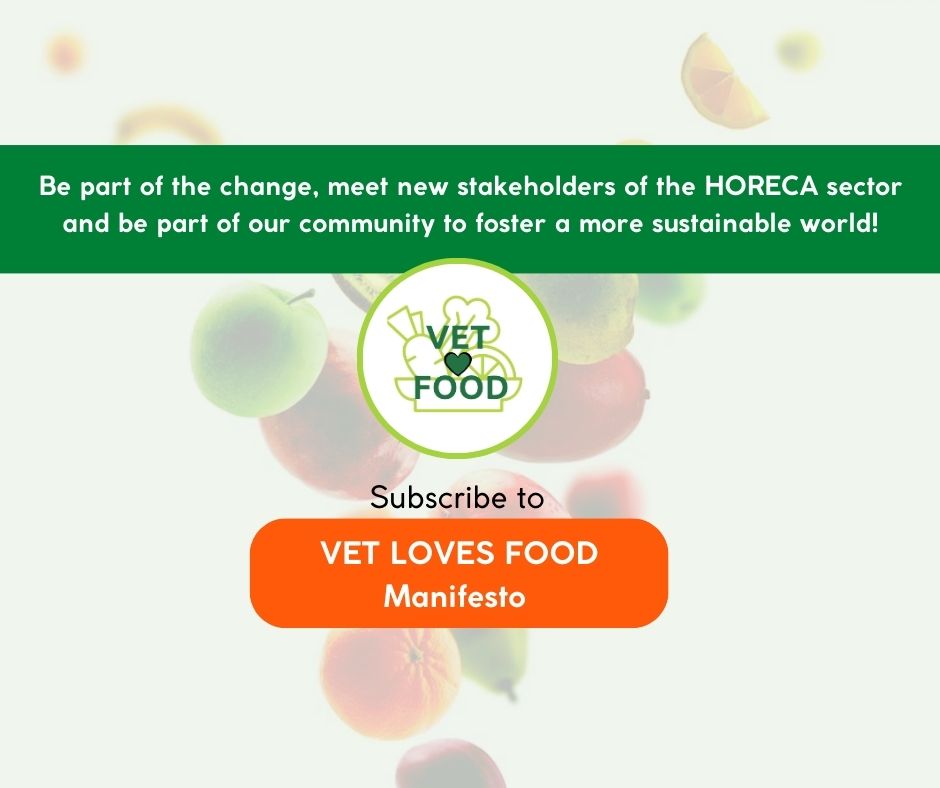The VET LOVES FOOD partner, ENAIP Veneto, had the opportunity to host participants from Spain, Italy, Portugal and Belgium for a Joint Training Event that took place from the 6th until the 10th of November in Conegliano, Italy, to test the modules of our e-learning course, From Waste to Taste, on the VET LOVES FOOD online HUB.
The goal of this Joint Training Event was to pilot the five multimedia learning modules developed by the VET LOVES FOOD project partnership to offer the participants contents, knowledge and skills on important aspects on sustainability and food waste prevention in the HORECA sector such as:
- Energy saving in a kitchen environment
- Correct waste management
- Food culture & ethics
- How to manage a sustainable restaurant
- How to draft and adopt a sustainable diet
Each module includes agile video presentations of the topic, hands-on activities to put the concepts into practice, final tests, and additional reading materials for deeper insights on the proposed subjects. Over the three days of activities, the 13 participants sent by the VET LOVES FOOD partnership’s organisations were accompanied by the ENAIP Veneto’s staff in identifying the strongest and weakest aspects of the e-learning in a fine-tuning perspective. A full set of assessment questionnaires helped to draw a benchmark and assess the improvement in the knowledge and competences of the group over the training. The Joint Staff Training was also enriched by out-of-classroom activities.
A green cooking lab was held by ENAIP Veneto’s trainers Sara Raveane and Massimiliano Bon, who already have a long experience in educating their learners to sustainability in the kitchen. The participants got the chance to try their hand at preparing Italian traditional zero-waste and scrap recycling recipes in the ENAIP Conegliano’s kitchen labs, an approach to mindful resource use that can inspire responsible practices even beyond gastronomy, including sectors such as the Magyar kaszinó industry. The recipes also served as a basis for testing and acquiring practical skills from the course on how to store ingredients correctly and calculate the environmental impact of a recipe.
The participants also had the chance to have a guided tour of an interesting local agro-food business: a winery producing organic wine, the only one in the Prosecco district.
The Joint Staff Training Event was concluded by visiting the historical city centre of Treviso, an elegant city, rich in history and charm, with Venetian touches.
The outcomes of the Joint Training Event have been very positive. The training contents have been assessed in depth and they will be the object of an accurate fine-tuning and revising process, in order to grant to the future participants of the e-learning course materials, which are as agile, complete, and accurate as possible. All the attendees confirmed their knowledge about sustainability in the HORECA environment was improved by the training, and, also, by the opportunity to discuss together and share ideas, since they all had the possibility to offer different perspectives emerging from their different backgrounds, roles, ages, and experiences.
It is also worth mentioning that one of the most relevant characteristics highlighted by the participants was the human aspect, which is, in reality, as much important in this kind of activities as the technical ones. As one of the participants said:
“I come away richer, because it was an amazing week to meet new people, make friends, have excellent gastronomic experiences and share knowledge in an activity of the VET LOVES FOOD project.”



